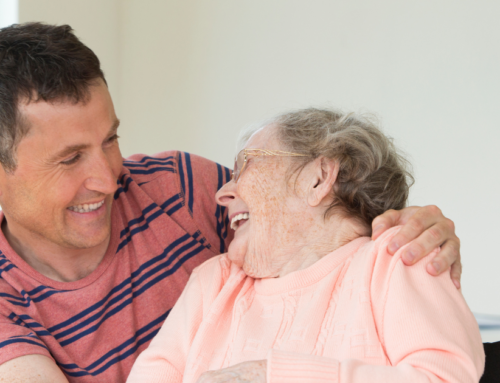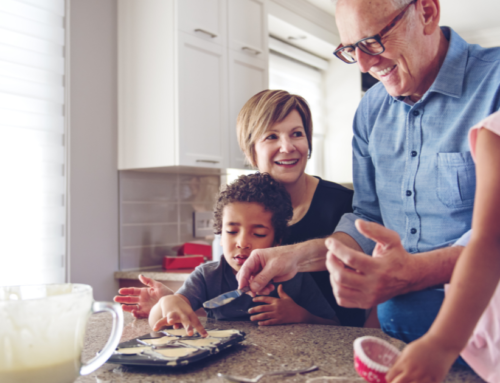Being a family caregiver is a challenging role that you probably never expected to assume and is likely one you haven’t been trained for. The good news: you don’t have to be a nursing expert, saint, or superhero to be a great family caregiver. With the proper support and help along the way, you can provide effective and loving care and not have to sacrifice yourself in the process. Caregiving can be a very rewarding experience – for you and your loved one.
Like being adept at anything, a few good tips along the way can make a big difference in succeeding at what we’re attempting to accomplish. Here are five insights into the ins-and-outs of successful caregiving that can make your journey more effective and enjoyable.
1. Learn as Much as You Can
The more you know about your family member’s illness or disability, or just the aging process, the better you’re going to feel about your new role. Your anxiety level will be much lower, and you’ll be much more effective and successful at caregiving.
The best way to learn is by asking their doctor questions. They can give you a lot of information about the situation: the diagnosis, the treatment, symptoms to watch for, and how you can best assist your family member.
Supplemental sources of information can be found online, at the library, and through other caregivers’ guidance. There’s a lot to learn, so don’t be afraid to ask the doctor if there’s information you’ve absorbed that you don’t quite understand.
2. Seek Out Other Caregivers
Knowing that you’re not alone is very encouraging. Giving and receiving support from others in the same situation will help lessen any feelings of isolation. Search online for local caregiver support groups or national organizations you can participate in remotely.
3. Trust Your Instincts
Nobody knows your family member as well as you do. You never want to ignore what doctors, nurses, and specialists tell you. However, sometimes you’ll have the feeling that you should talk more before action is taken. Listen to your gut, and don’t be afraid to speak up. A caring healthcare provider will listen to you and give you feedback on your ideas. They may not act on them, but at least you’ll have a better understanding of the situation.
4. Encourage Your Loved One’s Independence
A good caregiver doesn’t do everything for their family member. And most people receiving care want to retain a feeling of freedom and not be a burden to anyone. Let your loved one complete tasks that they’re capable of doing, while still being there to lend a hand when they need it.
5. Know Your Limits
Part of successful caregiving is being realistic about how much time and energy you have to give. By knowing your limits, you can set boundaries and communicate them to doctors and family members. When you reach your limits and need help, don’t be afraid to seek it from friends, family, or a professional home care agency.
Determining when you’ve reached your limits and it’s time to get professional care for your spouse is never easy. Finding a reliable in-home caregiving service that provides quality respite care, personal care, transitional care, medication reminders, specialized care, dementia, and Alzheimer’s care, and hospice support can be challenging.
If you are living in Pasadena, CA or the great Los Angeles area – we can help. Contact us today for a free in-home assessment by a nurse before any assignment is started. A nurse will also visit periodically during the assignment to re-evaluate your loved one’s needs and level of care.
To learn more about New Wave Home Care, the caregiving services we provide, and the areas we service, please visit us today at www.newwavehomecare.com.



